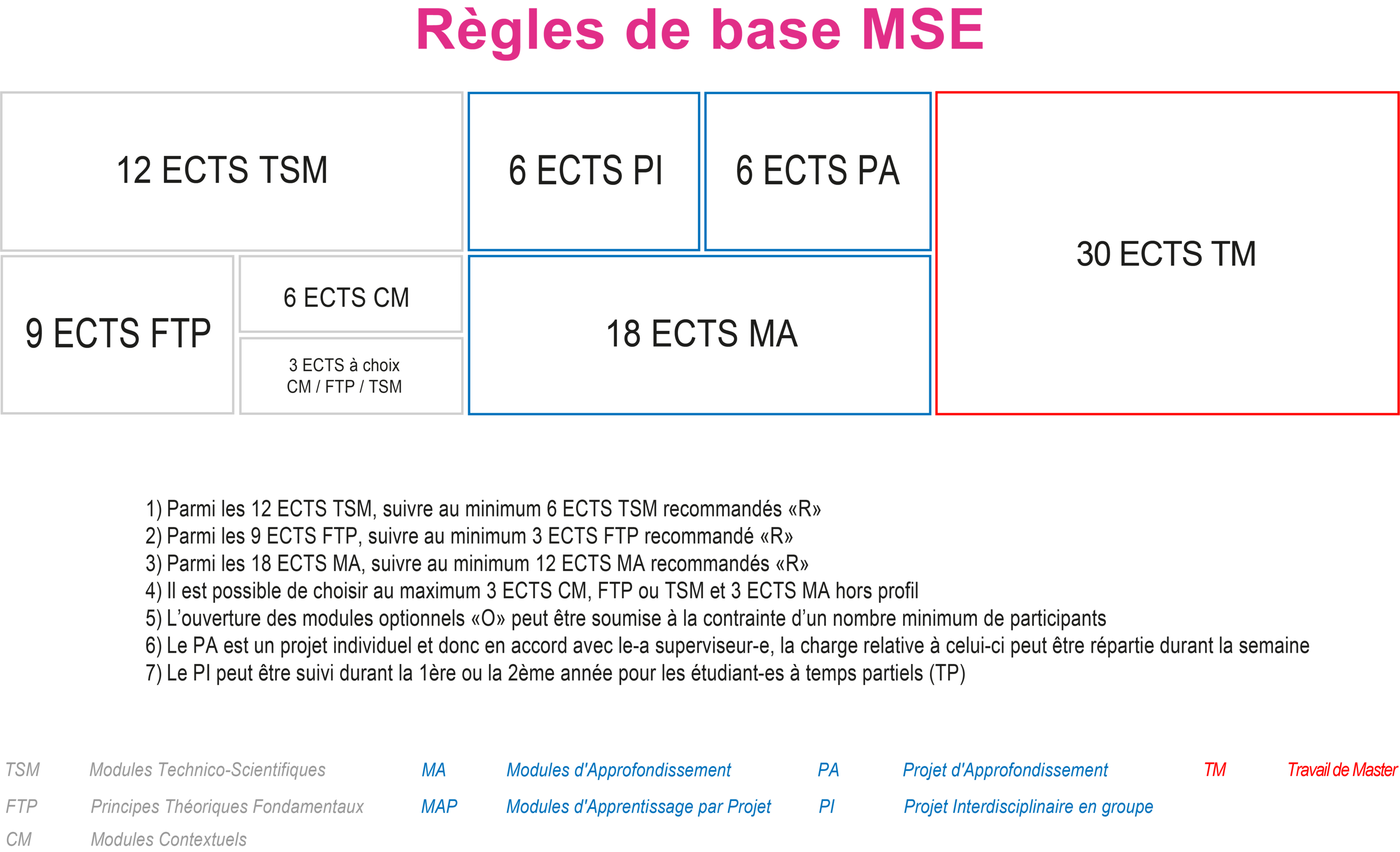The MSE Computer Science (CS) profile is aimed at acquisition of in-depth technical and methodological skills in communication systems (IoT, cloud, distributed/parallel and/or mobile systems, etc.), information systems (collection, organization, management, analysis, retrieval and visualization of information), cybersecurity, embedded systems and advanced user interfaces (natural user interfaces, augmented reality, virtual reality, etc.)
Concept
Why a Master's degree in Computer Science?
In Switzerland, the computer sciences sector employs more than 210,000 people. The technology and the science associated with these disciplines are expanding at such a rate that the bachelor's degree course cannot keep up. Those seeking to work in the sector will not only need to master the existing technologies, but also be capable of following their evolution, carrying out comparative studies, choosing the most appropriate one in a given context, and combining them if necessary, in order to take advantage of the strong points of each one.
What level can students expect to achieve?
Compared to students in the Bachelor’s programme, graduates of the MSE (Master of Science in Engineering), Computer Science profile, will have a stronger theoretical and conceptual basis and in-depth knowledge and skills in one or more of the following areas: software engineering, information systems, communication systems, cybersecurity, advanced user interfaces, embedded computing. They will be able to abstract a problem situation in order to find and realize efficient, sustainable and innovative solutions. They will be able to apply research results to concrete problems, always with the objective of finding the appropriate solution to their problem.
Target group
The Computer Science profile is part of the MSE, which is a course offered jointly by the Swiss universities of applied sciences. It follows on from the Bachelor's degree. The Computer Science profile is open to all students who hold a Bachelor's degree in Computer and Communication Systems (ISC) from HES-SO or a degree deemed equivalent.
Professional profile
Graduates of MSE Computer Science programme will be able to work in research and development as well as in project management. Their employers, in Switzerland and abroad, will be in the service and production industries as well as in private and public sector organizations.
Skills to be developed & specialisations
MSE Computer Science students will have master-level knowledge and skills in one or more of the following areas:
Software engineering and technology: Students targeting this area will be able to analyse, design and develop all kinds of innovative software applications and systems (parallel and/or distributed systems, cloud-based and/or IoT systems, high performance systems) in close collaboration with stakeholders and customers. They will be able to design and develop advanced user-centric interfaces. They will master the processes and concepts of continuous integration and agile risk-based software development processes. They will use the appropriate software development tools and programming languages. They will be able to play different roles in software development teams ranging from leader of a small development team to project manager.
Communication systems: Students targeting this area will analyse, plan, implement, and operate communication systems that rely on technologies such as the cloud, embedded systems, and distributed/parallel and/or mobile systems. They will be able to design and develop communication protocols, interfaces, services, platforms and virtual networks in a secure and reliable manner. They also have in-depth knowledge in the field of wireless communications and computer security.
Information systems: These are computer systems that enable the collection, organization, management, analysis, retrieval and visualisation of information. Students interested in this field will develop, implement and operate distributed applications and information systems using structured and unstructured data. These systems must be secure and reliable. They must be able to self-adapt using learning techniques.
Cybersecurity: Students in this field will learn how to design and develop secure software and systems. They will master the technologies (cryptography, authentication, etc.) related to the design, development, control and audit of secure systems that respect privacy. Students will learn to identify, quantify and mitigate risks and threats related to cyber security. They will be able to play the role of attackers if necessary. They will be able to evaluate and adopt new security technologies from research and study new threats from practice.
Advanced user interfaces: This specialisation is concerned with the science, techniques and technologies related to "natural" user interfaces. Students interested in this field will be able to design, implement and evaluate advanced, user-centred interfaces for business applications (including games). These interfaces use different modalities: gestures, speech, etc. They will be based, among other things, on virtual or augmented reality to enable immersive natural interaction.
Embedded computing: MSE students interested in embedded computing will learn to integrate and optimize systems composed of heterogeneous hardware platforms, often with limited computing resources. They will design and develop software adapted to various platforms such as microcontrollers, multi-processor systems, GPUs, or specific FPGA accelerators. They will study advanced notions related to real-time systems and concurrency and apply them to embedded operating systems. They will explore hardware-software design methods to optimize performance in terms of energy efficiency and resource utilization.
Contact
Nabil Abdennadher
Head of the CS profile (major)
HES-SO Master
Av. de Provence 6
1007 Lausanne
T + 41 58 900 00 00
mse(at)hes-so.ch



